Are Humans an Invasive Species? A Heathen’s Point of View
I was talking with a friend of mine and he remarked that humans are an invasive species. I had to think about this a moment because, quite honestly, I don’t consider humans to be an invasive species.
To a large degree, this is an insulting term when referring to ourselves as such. Insulting and wrong, mainly because of the definition of what an invasive species entails. Even though we shouldn’t consider ourselves an invasive species, that doesn’t mean we aren’t damaging the environment and causing extinctions. But calling ourselves invasive isn’t correct.
I’ll go over the facts with you, and give you my take on it.
What Exactly is an Invasive Species?
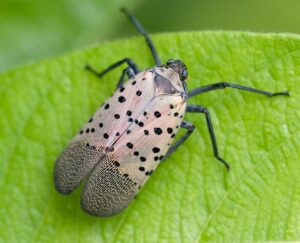
When we talk about invasive species, we often think about the spotted lantern fly or feral hogs. (Both, incidentally are invasive species.) Sometimes we talk about the spotted knapweed or giant hogweed, when it comes to invasive plants. But are humans invasive? Well, not according to the definition.
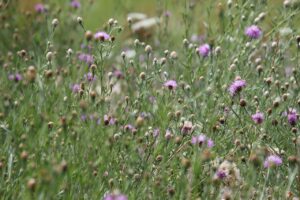
An invasive species is as defined by the International Union for the Conservation of Nature (IUCN) as “animals, plants or other organisms introduced by man into places out of their natural range of distribution, where they become established and disperse, generating a negative impact on the local ecosystem and species.”
Thanks to the Smithsonian Magazine, who analyzed this very question some time ago, they also came up with other definitions which included a non-native species which has widespread distribution. But do humans fit in the invasive species category?
Are Humans a Non-Native Species?
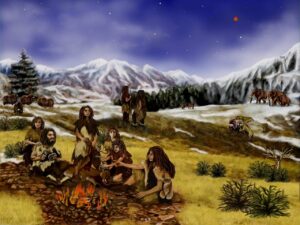
Now, here comes the tricky part. Are we not native to the land? Humans have colonized every continent on Earth except Antarctica at least 20,000 years ago. Most places even earlier because our Homo Sapiens ancestors migrated out of Africa about 100,000 years ago. Yes, many species were around before us, but given that we’ve lived almost everywhere on Earth for a very long time, one could make the argument that humans are indigenous to all continents except Antarctica.
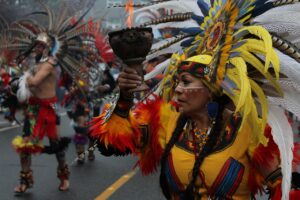
Even in the Western Hemisphere where scientists are still trying to decide when the first humans arrived on the North American continent, humans could be consider indigenous. (Current archaeological finds suggest around 20,000 years ago.) I think that most Native Americans and First Nations people would agree with me on that they are indigenous. And arguing that European descendants are an invasive species doesn’t work, because we’re all the same species.
What About the Introduction Part?
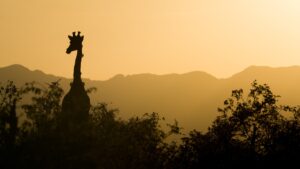
Part of being an invasive species is having humans introduce the species (intentionally or not) to a place outside the range of normal distribution. That non-native species has to disperse and cause a negative impact on the native species and the environment. The concept of humans introducing themselves is patently absurd, even if we have had a negative impact on other species. So, that doesn’t really count either.
As a side note, if we were an invasive species, where would we return to? The European-descendants to Europe? The Native Americans to Asia? But then, we all came out of Africa, so do we all go back there? The concept is ludicrous. I, for one, wouldn’t go simply because I hate hot weather. And bugs. Africa is too buggy for me.
Let’s Talk About What We Really Are
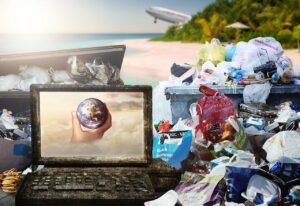
For all our destructive tendencies, what we should really be considered is a hyperkeystone species. A keystone species is “…defined as organisms that have outsized ecological impacts relative to their biomass. Here we identify human beings as a higher-order or ‘hyperkeystone’ species that drives complex interaction chains by affecting other keystone actors across different habitats.” (Worm B, Paine RT. Humans as a Hyperkeystone Species. Trends Ecol Evol. 2016 Aug;31(8):600-607. doi: 10.1016/j.tree.2016.05.008. Epub 2016 Jun 13. PMID: 27312777.)
In layperson’s terms, a keystone species is an animal that impacts the environment in a way that exceeds its basic needs to survive. A hyperkeystone species affects not only its environment the way a keystone species would, but also affects all the other keystone species no matter where they are.
So, basically we’re not only using up resources beyond what a normal animal of the same mass (weight) would to survive, but we also affect all the other keystone species as well.
So Why Does Not Being an Invasive Species Matter?
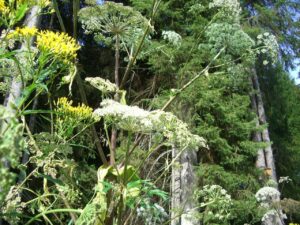
Okay, so now you know we’re not an invasive species. But why does that even matter? An invasive species doesn’t really go out of its way to be malicious; it simply does what it always has done to survive. Problem is, it has good success in the new environment because there aren’t any predators to keep it in check. So, it is able to flourish unchecked.
Humans, on the other hand, have no real predators anywhere on Earth to keep our population in check. Sure, we might get taken out by a lion or grizzly bear in the wild, but for the most part, we’ve eliminated the dangers of predators outside of our species by our technology. War, famine, disease, natural and manmade disasters, and all the other blights that come with humanity now keeps our population in check.
Being an invasive species means that it has no way of restraining itself. Hogweed and knapweed spread because that’s their biological programming. Feral hogs destroy their environment because that’s what they do. They don’t think or consider the consequences of their actions.
On the other hand, Humans can recognize when they’re doing damage to the environment. We can make changes in our behavior so that it causes the least harm. That’s why we can’t be an invasive species. We’re cognizant of the changes we’ve made to the environment and have the ability to fix it if the damage is fixable.
We Aren’t an Invasive Species Because We’re Part of the Ecosystem
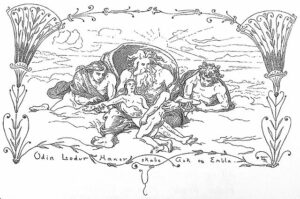 We evolved as part of Earth’s ecosystem. We didn’t just arrive “poof!” out of nothing. The myth of Odin, Vili, and Ve creating humans from tree trunks is a nice story, but it is simply a way our ancestors tried to explain how we came into being. The idea that humans were carved from trees, given life, intelligence, and then given souls suggest that maybe we were crudely carved from life, itself. That may be reaching a bit, but it is something to ponder.
We evolved as part of Earth’s ecosystem. We didn’t just arrive “poof!” out of nothing. The myth of Odin, Vili, and Ve creating humans from tree trunks is a nice story, but it is simply a way our ancestors tried to explain how we came into being. The idea that humans were carved from trees, given life, intelligence, and then given souls suggest that maybe we were crudely carved from life, itself. That may be reaching a bit, but it is something to ponder.
The point is that even the Norse myths suggest we came from the land. We didn’t just appear out of nowhere, even if the gods had their hands in our creation. We weren’t told, “You are masters over all creation.” On the contrary, we were given the chance to thrive and strive to be better.
That doesn’t make us masters of the land, but our role as hyperkeystone species puts us in a spot where if we do damage, we need to fix it in order to survive.
Luckily, we have the gods who can help us. No, they won’t get us out of the mess we’re in, but they can work with us to undo the damage we’ve done as a species. All we have to do is ask while we do the heavy lifting. Now, we just have to clean up after ourselves.
—
Did you know you can become my patron for as little as $5 a month? This entitles you to content not posted anywhere else. Plus you get to see posts like this three days before the public! Without patrons, I’d be having a very hard time keeping this blog going. Become a patron today!Become a Patron!
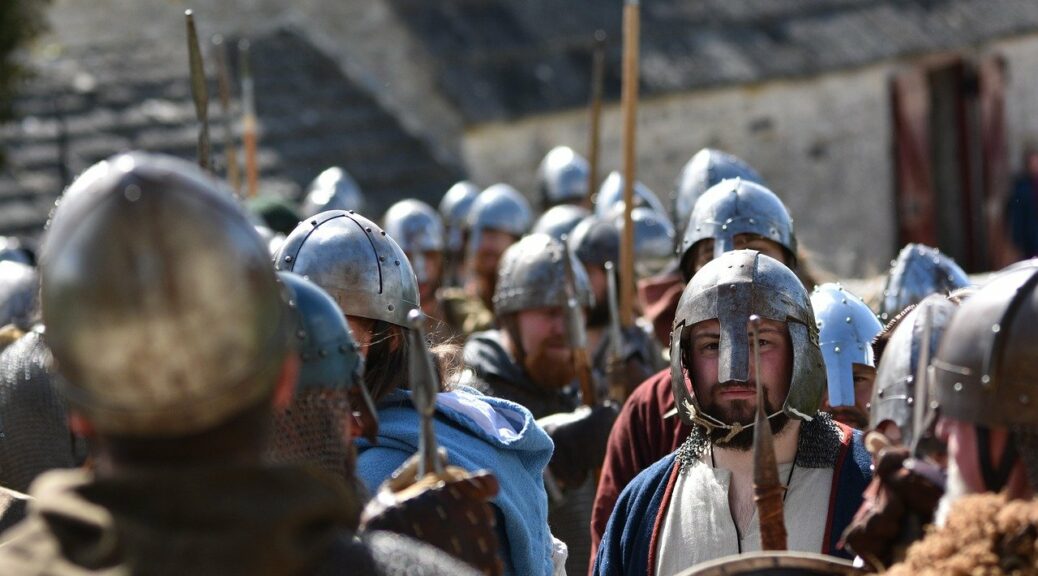

 If you’ve felt like your life is in complete turmoil all the time, join the club. Between the pandemic, the bizarre weather, and the social problems, you might be feeling just a tiny bit stressed out. No, it’s not just you. These are the times we live in.
If you’ve felt like your life is in complete turmoil all the time, join the club. Between the pandemic, the bizarre weather, and the social problems, you might be feeling just a tiny bit stressed out. No, it’s not just you. These are the times we live in.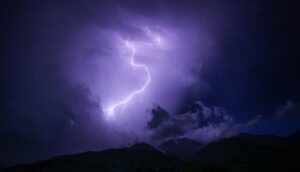 While some of us are fortunate (or crazy enough) to hear our gods actually speak; our gods constantly interact with us daily through our environment. They speak through Nature a lot, and if you pay attention, you get it. Problem is, there are a lot of people who hear the messages and don’t care, disagree, or think their own opinions are more valuable than what the gods say. This is stupid and foolhardy.
While some of us are fortunate (or crazy enough) to hear our gods actually speak; our gods constantly interact with us daily through our environment. They speak through Nature a lot, and if you pay attention, you get it. Problem is, there are a lot of people who hear the messages and don’t care, disagree, or think their own opinions are more valuable than what the gods say. This is stupid and foolhardy. We don’t really know much about how the pandemic started. Sure, there are a bunch of conspiracy theories out there, but most scientists believe that SARS-CoV-19 was a bat disease that was spread through an intermediary host such as a pangolin to humans, and mutated enough to become a pandemic.
We don’t really know much about how the pandemic started. Sure, there are a bunch of conspiracy theories out there, but most scientists believe that SARS-CoV-19 was a bat disease that was spread through an intermediary host such as a pangolin to humans, and mutated enough to become a pandemic. Before vaccines, people either got sick and died, or they had enough natural immunity to combat the pathogen, or they practiced their own form of social distancing and rode out the pandemic. The problem, of course, was that a lot of people died. The Black Death is a prime example. It’s estimated that the Black Death wiped out anywhere from one third to one half of Europe. Whole villages became ghost towns within weeks, if not days, because everyone became sick and died.
Before vaccines, people either got sick and died, or they had enough natural immunity to combat the pathogen, or they practiced their own form of social distancing and rode out the pandemic. The problem, of course, was that a lot of people died. The Black Death is a prime example. It’s estimated that the Black Death wiped out anywhere from one third to one half of Europe. Whole villages became ghost towns within weeks, if not days, because everyone became sick and died. Some people think their god will save them from this disease. That is hubris, and they’re fucking wrong. People have been either ignorant of, or ignoring the science behind the pandemic and vaccinations. Time and time again, doctors have proven vaccinations save lives. Did you live in fear of smallpox while growing up? Did you worry about getting measles or mumps? How about polio? All these diseases are relegated to the history books (or are outbreaks in unvaccinated communities) because of vaccines. Rabies is a small concern unless you get bitten by a wild animal (bat, skunk, or raccoon, for example), largely because we vaccinate our pets against rabies. And what do they give you to save your life? A course of vaccines to amp up your immune system to fight the disease.
Some people think their god will save them from this disease. That is hubris, and they’re fucking wrong. People have been either ignorant of, or ignoring the science behind the pandemic and vaccinations. Time and time again, doctors have proven vaccinations save lives. Did you live in fear of smallpox while growing up? Did you worry about getting measles or mumps? How about polio? All these diseases are relegated to the history books (or are outbreaks in unvaccinated communities) because of vaccines. Rabies is a small concern unless you get bitten by a wild animal (bat, skunk, or raccoon, for example), largely because we vaccinate our pets against rabies. And what do they give you to save your life? A course of vaccines to amp up your immune system to fight the disease.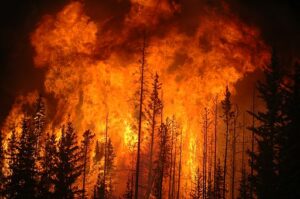 I know you’ve probably heard politicians and scientists talk about climate change. In fact, I was a big climate change denier, but the more I look at the data, the more I think that spewing greenhouse gases into our atmosphere isn’t a good idea. Furthermore, we need to reduce pollution. The US is a contributor, but
I know you’ve probably heard politicians and scientists talk about climate change. In fact, I was a big climate change denier, but the more I look at the data, the more I think that spewing greenhouse gases into our atmosphere isn’t a good idea. Furthermore, we need to reduce pollution. The US is a contributor, but 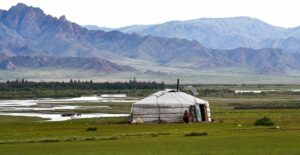 I’m not saying go live in a yurt and forgo your computers, smartphones, and latest gizmos. (Unless you really want to. But those Mongolians in the picture even have solar energy.) I’m not saying ditch your car. What I am saying is be smart about what you buy, where you go, and what you do. If you can, invest in renewable energy for your home such as solar, wind, or geothermal energy. If that can’t happen, then consider purchasing the best energy saving devices when your old ones need to be replaced. Go LED bulbs because the twisty bulbs (mini-fluorescent types) still have mercury, plus they’re brighter and a lot more energy efficient. Switch to power companies that don’t use fossil fuels, if you can.
I’m not saying go live in a yurt and forgo your computers, smartphones, and latest gizmos. (Unless you really want to. But those Mongolians in the picture even have solar energy.) I’m not saying ditch your car. What I am saying is be smart about what you buy, where you go, and what you do. If you can, invest in renewable energy for your home such as solar, wind, or geothermal energy. If that can’t happen, then consider purchasing the best energy saving devices when your old ones need to be replaced. Go LED bulbs because the twisty bulbs (mini-fluorescent types) still have mercury, plus they’re brighter and a lot more energy efficient. Switch to power companies that don’t use fossil fuels, if you can.